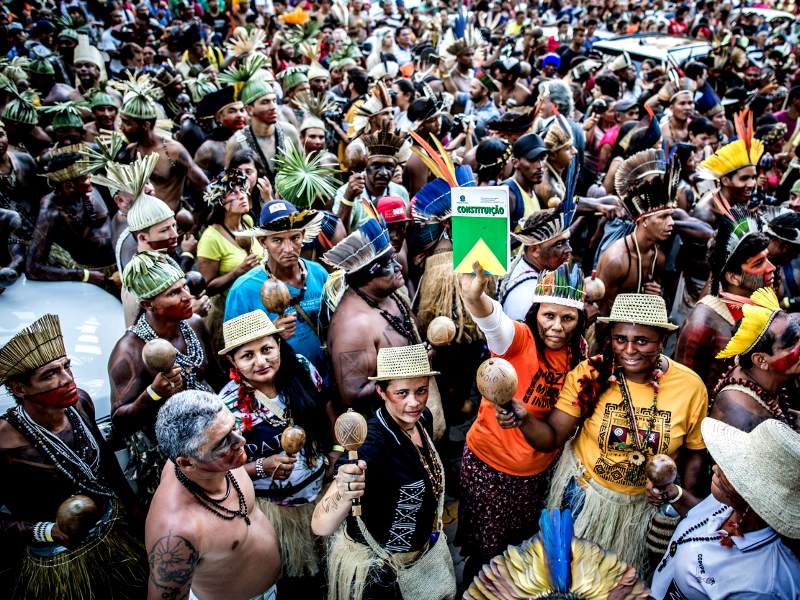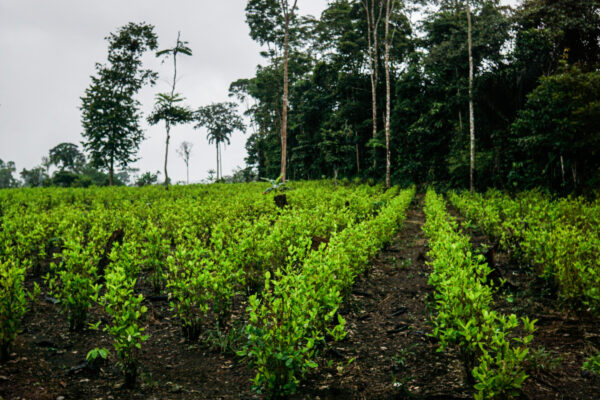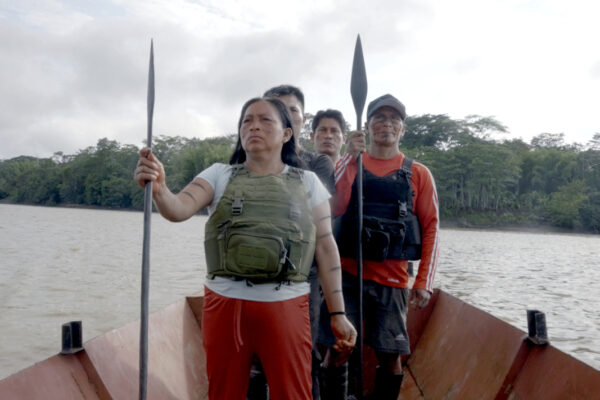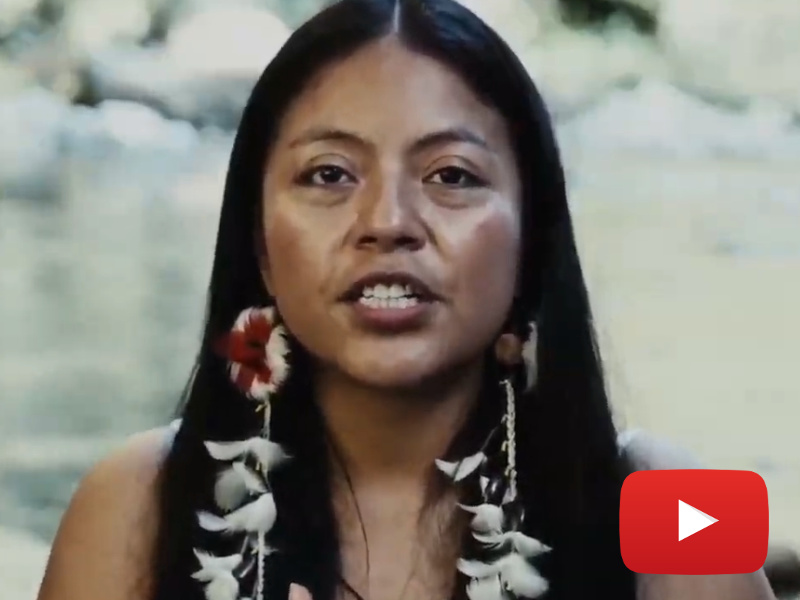UPDATE
Since Tuesday’s inauguration, President Bolsonaro has unleashed a frontal assault on human rights that foreshadows the adversity Brazil’s minority groups and their advocates will face in times to come.
Bolsonaro opened his tenure by issuing an executive order stripping the mandate of indigenous agency FUNAI to title native territories and transferring it to the Agriculture Ministry. This brazen move, tailored to serve ultra-conservative factions within Brazil’s agribusiness sector, aims to definitively paralyze indigenous land demarcations and initiate a process through which industrial agriculture and extractive industry gain access to indigenous territories.
Meanwhile, Bolsonaro’s order granted his government the power to spy on and intimidate Brazilian and international organizations working to defend human rights and environmental protections in the country, claiming that NGOs are responsible for manipulating and exploiting indigenous and traditional peoples. These rollbacks send a chilling signal of the threats facing Brazil’s embattled social movements and the irreplaceable ecosystems they defend.
Lawyers at the Articulation of Brazil’s Indigenous Peoples (APIB) swiftly reacted to Bolsonaro’s unconstitutional order by filing a lawsuit with the Attorney General calling for FUNAI to have its mandate reinstated. This legal challenge and others targeting the government’s efforts to quash activism will likely end up before Brazil’s Supreme Court. However, damage inflicted before the country’s judiciary places needed checks on the Bolsonaro regime could be profound.
Today’s inauguration of right-wing zealot Jair Bolsonaro to Brazil’s presidency ushers in a dangerous era for human rights, environmental safeguards, and the rule of law in the world’s fourth-largest democracy. This is particularly true in the Amazon rainforest, where his government aims to unleash an assault on socio-environmental protections that is unprecedented since the restoration of Brazilian democracy, with dire consequences for the future of this critical region, its stewards, and global climate stability.
The anxious days following Bolsonaro’s election to the country’s highest office have already produced a string of incidents that illustrate the storm he and his incoming administration plan to unleash on the Amazon and its peoples. Yet Bolsonaro’s election has also foreshadowed how a diverse and forceful movement – from the grassroots to the global – will rise to counter his menacing agenda.
Since the October election, Mr. Bolsonaro has consistently employed divisive and insulting rhetoric to lay the groundwork for an assault on human rights and environmental protections. His comparison of indigenous peoples to ” zoo animals” confined to “reserves” who should seek to be “human beings like us” by abandoning their lands and ways of life should not be dismissed as willful ignorance or common racism, but rather as a brazen display of how he and his cohorts aim to transform preserved indigenous territories into merchandise to be exploited on the open market.
Bolsonaro has already announced that one of his administration’s first tasks would be to “revise” the land titling process for the fertile, mineral-rich Raposa Serra do Sol indigenous territory in the Amazonian state of Roraima. Claiming that indigenous lands represent an obstacle to Brazil’s development, he said, “It is the richest area in the world. You need to exploit it in a rational way. And, alongside indians [sic], giving [them] royalties, integrating the indian into society.”
This false logic of assimilation as ” integration” echoes that of Brazil’s military dictators – frequently eulogized by the president-elect – who were responsible for genocidal attacks against indigenous peoples. Again, these parallels are not accidental and are not lost on the country’s native population. Such declarations signal how industrial interests such as agribusiness and mining will enjoy unprecedented access to Brazil’s protected areas under Bolsonaro.
Joênia Wapixana, the first female indigenous representative elected to Congress, addressed Bolsonaro’s looming assault on native land rights in an interview with the Brazilian newspaper O Globo, saying “The demarcation of lands and protection of indigenous peoples are supported in [Brazil’s] Constitution. They are duties of the state, and they are not dependent on the will of any government.”
Mr. Bolsonaro clearly sees things differently, believing that he has a mandate from the Brazilian people to enact sweeping, unconstitutional change. To achieve these ends he has assembled a shamelessly corrupt Cabinet, conspicuously empowering members of the notorious ruralista congressional bloc who embody the worst tendencies of Brazilian agribusiness to steamroll rights and environmental protections for political and personal gain.
For example, his Chief of Staff Onyx Lorenzoni openly admitted to taking bribes from the scandal-ridden meat-packing firm JBS, while his Agriculture Minister Tereza Cristina, head of the ruralistas, mysteriously increased her personal wealth 50,000 percent since first being elected to Congress in 2014. The manifold conflicts of interest represented by these political representatives of Brazilian agribusiness indicate who Bolsonaro’s government aims to serve.
Bolsonaro’s incoming Minister of Environment Ricardo Salles, who ran a failed congressional campaign calling for open violence against “the left and the MST [Landless Workers Movement],” has called climate change a “secondary” matter, and signaled he will slash his government’s “ideological” environmental enforcement operations. Shortly after his nomination, two members of the MST were brutally assassinated and reports emerged of how the lax enforcement of environmental crimes espoused by Salles has driven a catastrophic “epidemic” of toxic illegal mining sweeping the Brazilian Amazon.
Meanwhile, Bolsonaro announced that he will abolish the Ministry of Human Rights and shift the mandate of the indigenous agency FUNAI from the Ministry of Justice to his newly created Ministry of Women, Family, and Human Rights. This blatant demotion is aimed at meeting ruralista demands to undermine FUNAI’s critical mission to serve indigenous peoples.
Bolsonaro’s presidency is a disaster foretold. The impacts his institutional assault portends are immeasurable. And while strained social movements are bracing for the worst when his government takes power, they are also preparing a spirited response to forestall his plans.
Brazil’s National Indigenous Movement (MNI) is among those leading the charge, mounting resistance from street protests to court lawsuits and redoubling its efforts to broadcast its message to the global public. Speaking from Brussels, the country’s foremost indigenous voice Sônia Guajajara called for an EU boycott of Brazilian commodities linked to “social extermination” and environmental catastrophe.
With a government highly resistant to internal pressure, Brazil’s progressive movements are increasingly looking for international recourse and solidarity. It is clear that the struggle to defend indigenous rights and Amazon protections is not just a local matter. As such, it is our collective duty to to stand with Brazil’s forest protectors because their fate is so closely linked to our own.
Amazon Watch’s Complicity In Destruction campaign aims to answer this call by targeting the global supply chains and financial relationships that sustain today’s attacks on the Amazon and its peoples. We are doing so in close collaboration with the MNI, its local partners, and a broad coalition of international allies.
In such times of crisis we must pull together to stave off the onslaught of destructive government and industry. As we enter a precarious New Year we must take note: our collective future depends on unified and successful resistance.














